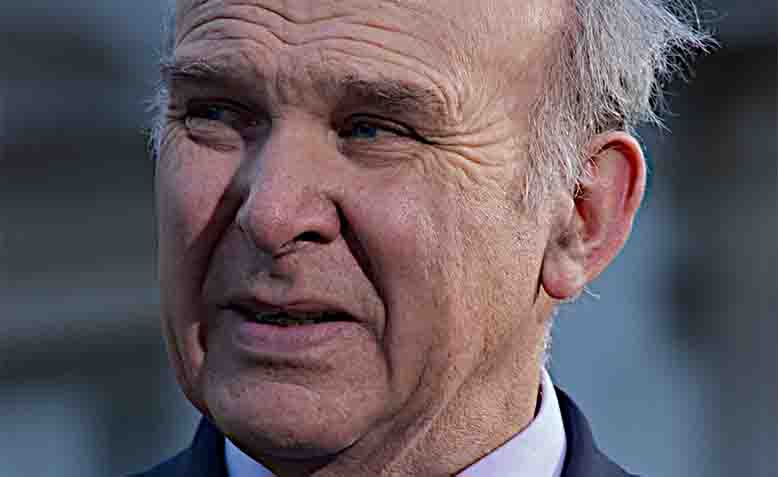 Vince Cable, leader of the Liberal Democrats. Photo: Wikipedia
Vince Cable, leader of the Liberal Democrats. Photo: Wikipedia
What does the future hold for the party?
Vince Cable has finally become Liberal Democrat leader after a long and mainly ignored coronation. Alas, it seems few outside gushing contributors to the Guardian and New Statesman have even noticed.
After the Lib Dems’ woeful performance in June’s election, Tim Farron promptly announced his resignation. With no Deputy Leader in place, he has had to remain in place until today.
The favourite for the top spot, Jo Swinson, did not stand, and for a short while, this appeared to leave a straight fight between Norman Lamb and Ed Davey, only for both to eventually make way for Vince Cable to go unopposed.
Cable is more respected than his predecessor, and also is unlikely to force supporters to defend odd positions on religion and backwards views on homosexuality. However, although the head chef may be different, the menu is profoundly the same.
In the interviews Cable has given ahead of assuming the leadership, he has said nothing that suggests he can reignite the Lib Dem ship and lead an electoral recovery. He has enthused at the party’s growing membership and the possibility of overtaking the Tories in that regard. Bearing in mind that Tory membership is staggeringly low and ever-decreasing, it seems to be a bizarrely low barometer of success, particularly with Labour’s membership hundreds of thousands ahead.
He has also focused on Brexit. Arguing simultaneously that it probably won’t happen, and that it will cause endless misery across the country. He also determines that the party got its Brexit message wrong at the election; that the country wasn’t interested in a strictly anti-Brexit platform. So, he’ll change that message? Err, no.
Instead, he is arguing that it was just the timing that was wrong. That May’s snap election meant people were still misty-eyed on Brexit and both major parties were able to cash in. Further, he predicts that at the next election, the negative effects of Brexit will drive people towards the Lib Dems. This is majorly flawed.
Firstly, if the party’s Remainer revival narrative was overwhelmingly out of touch a year after the Brexit vote, how could it possibly be any more relevant further down the line?
Secondly, his thesis relies on a huge erosion in Labour support. Cable pins this on young Remain voters feeling the effects of a Tory Brexit and deserting Corbyn because he did not oppose the country’s decision to leave the EU. This logic is warped. In Cable’s mind, it appears that the only opposition to harsh Tory Brexit is no Brexit at all. The idea that the Labour Party may stand on the side of a Brexit that puts workers first, seems not to enter Cable’s head. In itself, this shows he has not learned anything from the election.
In June, people voted on issues like the NHS, education and jobs. These issues mean a lot to people and acted to unite many across the Brexit divide. In the main, people were not voting along the lines of Leave and Remain, but instead on core issues. Labour effectively reflected this and were thus able to surprise many with their performance. Meanwhile, the Lib Dem campaign faltered as it tried to reheat the referendum debate, seemingly unaware that the country had moved on and were looking for solutions to key issues and not a magic ‘Remain will solve everything’ answer.
In arguing that this approach will somehow pay dividends in the future, Cable is deeply misguided. When the effects of a Tory Brexit become clear, it will be Labour that will be placed to oppose them because they will be able to offer an alternative. All the while, much like this election, the abstract Lib Dem narrative of Remain will most likely again be drowned out by the core issues affecting people.
Thirdly, while Cable has the credibility garnered by being a cabinet minister, this legacy makes the idea of young Labour voters flocking to his party a distinct fantasy. Jeremy Corbyn’s programme is popular because it inspires people to believe that there is a radical alternative to Tory austerity. One of the lynchpins of Corbyn’s support amongst young people is his promise to scrap tuition fees. The idea that these same young people would subsequently flock to support a man offering no tangible alternative, and who broke a promise not to increase tuition fees in government, is frankly laughable.
Cable’s election as Liberal Democrat leader will probably comfort the party’s supporters. Under his watch, the party may even overtake the Tories with regards to membership. However, whoever the leader, the Lib Dems do not have any real answers to the issues affecting people up and down the country. Simply promising to roll the Remain clock back can never match the vision for a fairer society presented by Jeremy Corbyn. With no answers and no alternative, the Lib Dems may sink further into irrelevance.

